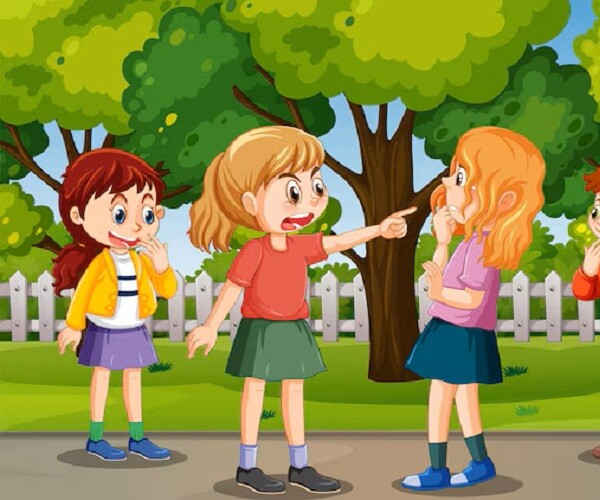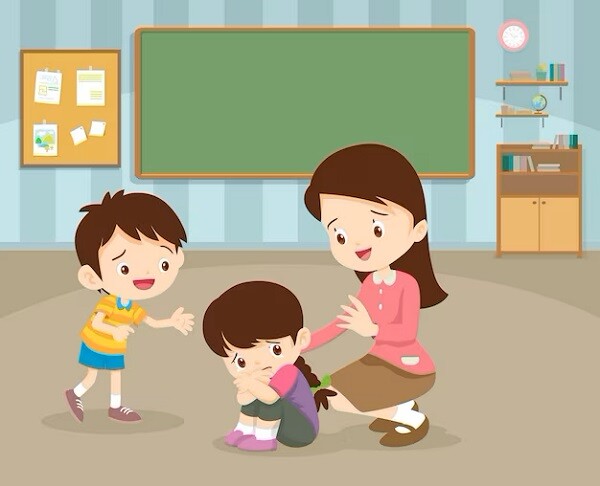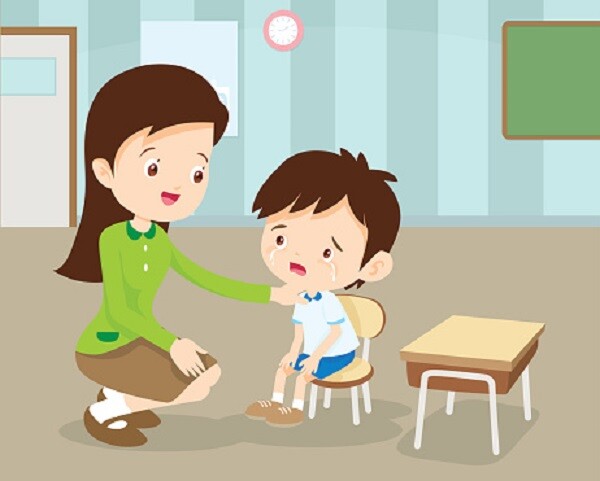This is a crucial stage in a child’s social and emotional development. It is where they begin to form friendships and explore and develop the necessary life skills.
In fact, most children are able to integrate into groups due to their natural curiosity and desire to make friends. However, there are also a small number of children who are at risk of isolation for various reasons.
These children may struggle with communication or simply be unable to find friends with shared interests. Prolonged isolation can lead to the development of four distinct personality traits.


Inability to control their emotions
Many children exhibit inappropriate behaviors in kindergarten, such as shouting, crying, or losing their temper, because they haven’t yet learned to manage their emotions. This is a crucial stage for emotional development, and not all children can adapt immediately.
For instance, if a child loses their temper because they can’t get what they want, other children may avoid them. Or, during nap time, if a child cries because they can’t sleep or feels bored, their peers may feel disturbed and not want to play with them.
Children who can’t control their emotions are often ostracized in kindergarten. They may become the target of bullying or be excluded from group activities by their classmates, increasing their feelings of loneliness and lack of acceptance. Prolonged isolation can lead to more serious issues, including anxiety and depression later in life.
Therefore, parents should help children learn to express their emotions appropriately, so they can better integrate into kindergarten life. Teaching them to recognize and analyze their emotions will develop their self-regulation abilities and improve their peer relationships.

Inability to control their emotions.

Lack of social skills and inability to get along with others
Children who struggle to get along with others often feel awkward in social situations.
For example, they may not know how to join a game or follow the rules, including sharing.
Children with poor social skills may also not know how to use polite language when communicating. For instance, when they want a toy, they may just take it instead of asking politely, “Can I borrow that to play with?”
Such behavior will likely annoy their peers, who won’t want to play with them.
Therefore, it’s important to develop children’s social skills. Parents can start by teaching them the following:
First, teach children to follow rules. Start with simple things like lining up, taking turns, and waiting, so they understand that order is necessary in social situations.
Second, parents should model sharing behavior, such as inviting friends over to share delicious food or giving away unused items, so children understand the joy that sharing brings. Teach them to respect others’ possessions.
Additionally, when they want to borrow something from someone else, guide them to ask politely and form the concepts of “yours,” “mine,” “borrow,” and “return.” Finally, teach them to use polite language in their daily lives.

Lack of social skills and inability to get along with others.

Reserved, introverted, and shy
Children who are reserved and shy often struggle to express their thoughts and emotions, leading to poor communication skills.
For example, when other children are discussing their favorite cartoon, a reserved child may remain silent and unable to join the conversation. Over time, their peers may find them hard to approach and gradually distance themselves.
Shy children can also become anxious and uncomfortable when facing new environments and strangers.
In group activities at kindergarten, they may not dare to participate actively and will hide in a corner.
For instance, during a game, they may not dare to act for fear of making mistakes, preferring to stand alone while the other children play happily.
If your child is reserved, introverted, and shy, you can try the following methods to help them:
First, communicate more with your child, encouraging them to express their thoughts and emotions. Guide them to speak by telling stories, playing games, etc.
Second, involve your child in some social activities to help them gradually adapt and interact with strangers. For example, outdoor play, charity work, scientific experiments, etc.
Additionally, give your child plenty of encouragement and affirmation to boost their confidence.
Talk to their teacher so they can understand your child’s personality traits and pay more attention to them in class, giving them more opportunities to express themselves and overcome their shyness.

Self-centered and selfish
Many children are self-centered and selfish, often causing trouble. For example, they may demand that their friends do things their way…
When playing with a group, they want to be the leader and give orders. If someone doesn’t obey, they may lose their temper or refuse to share toys…
When children exhibit such behavior, parents should guide them promptly. However, when guiding them, it’s important to refrain from scolding or shouting.
Teach them how to get along with others properly
Many domineering children like to use a commanding tone to control and direct others.
When you notice this, guide and teach them how to get along with others properly.
For example, instead of saying, “You have to do it this way,” teach them to say, “Can we do this together?” Small changes in their phrasing can make a big difference in how they interact with their peers.

Teach them how to get along with others properly.
Let them face some obstacles and learn to follow rules
When children behave unreasonably and arrogantly in public, let them face the consequences of their actions. Then, explain to them where they went wrong.
For example, if they shouted at or pushed their friends while playing, ask them how they would feel if someone did that to them. This will help them understand that their behavior affects not only themselves but also those around them.
“When Your Child is Being Bullied, Don’t Teach Them to Fight Back or Tattle: Try These Smart Parenting Strategies Instead.”
“When your child is being bullied, it’s natural to feel upset and protective. However, our experts advise that parents should maintain a calm, thoughtful, and patient demeanor. Reacting with anger or aggression can often escalate the situation and cause further harm to your child’s well-being. Instead, channel your energy into finding constructive solutions. Educate yourself on bullying, its impact, and effective strategies to address it. By staying composed and proactive, you empower yourself to support your child effectively through this challenging time.”




































